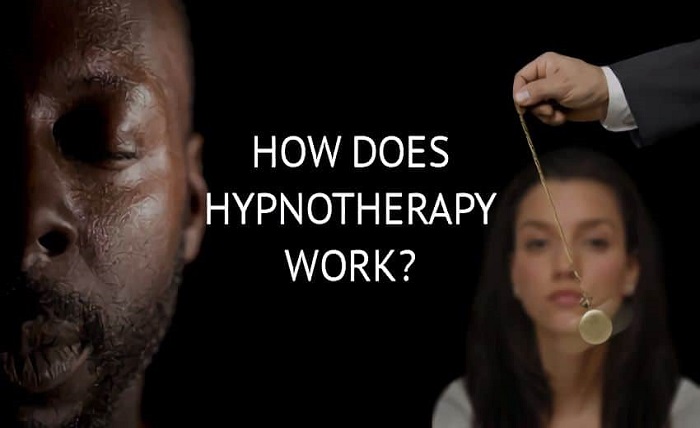How Does Hypnotherapy Work?

Explanation of the hypnotic state
Hypnosis is a naturally occurring state of focused attention and increased suggestibility. During hypnotherapy, a trained hypnotherapist guides the individual into this state, helping them relax and enter a trance-like state where the conscious mind takes a step back, allowing access to the subconscious mind.
The role of the subconscious mind
The subconscious mind plays a vital role in shaping our thoughts, beliefs, and behaviors. It houses memories, emotions, and deeply ingrained patterns that influence our daily lives. Santa Fe hypnotherapy aims to tap into the power of the subconscious mind to identify and modify negative or limiting beliefs, encouraging positive changes at a deeper level.
Techniques used in hypnotherapy
Hypnotherapists employ various techniques to facilitate therapeutic change. These may include direct suggestions, visualization, regression, and imagery. Through these techniques, the hypnotherapist can help clients address specific issues, such as phobias, stress, smoking addiction, weight management, and sleep disorders.
Benefits of Hypnotherapy
Overcoming fears and phobias
Hypnotherapy can be highly effective in helping individuals overcome fears and phobias that have a significant impact on their daily lives. By addressing the underlying causes and desensitizing the associated anxiety response, hypnotherapy can empower individuals to confront and conquer their fears.
Managing stress and anxiety
Stress and anxiety have become prevalent in today’s fast-paced world. Hypnotherapy offers a gentle and holistic approach to managing these overwhelming emotions. By inducing deep relaxation and teaching relaxation techniques, hypnotherapy can help individuals reduce stress, improve coping mechanisms, and achieve a calmer state of mind.
Smoking cessation
Quitting smoking is a challenging process for many individuals. Hypnotherapy can provide valuable support in this journey by addressing the psychological and emotional aspects of addiction. Through targeted suggestions and reinforcement of positive behaviors, hypnotherapy can increase motivation, reduce cravings, and boost the chances of long-term smoking cessation.
Weight management
Hypnotherapy can be a valuable tool for individuals seeking to achieve and maintain a healthy weight. By addressing the underlying emotional and psychological factors that contribute to overeating or unhealthy habits, hypnotherapy can help individuals develop a positive relationship with food, make healthier choices, and adopt sustainable lifestyle changes.
Improving sleep patterns
Sleep disorders can significantly impact one’s overall well-being and quality of life. Hypnotherapy techniques, such as guided relaxation and imagery, can promote better sleep patterns by calming the mind, reducing racing thoughts, and fostering a peaceful and restful state before bedtime.
Hypnotherapy Process
Initial consultation and assessment
A hypnotherapy session usually begins with an initial consultation and assessment. The hypnotherapist gathers relevant information about the client’s goals, concerns, and medical history. This helps in tailoring the hypnotherapy sessions to the specific needs of the individual.
Establishing goals and expectations
During the initial sessions, the hypnotherapist works collaboratively with the client to establish clear goals and expectations. This ensures that the hypnotherapy sessions are aligned with the desired outcomes and allows for effective progress tracking.
Hypnotic induction and deep relaxation
Once the goals are set, the hypnotherapist guides the client into a state of deep relaxation. This is typically achieved through hypnotic induction, which may involve progressive muscle relaxation, deep breathing techniques, or guided imagery.
Suggestion therapy and visualization
While the client is in a hypnotic state, the hypnotherapist introduces positive suggestions and affirmations tailored to the client’s specific needs. These suggestions aim to reframe negative thought patterns, promote healthy behaviors, and reinforce desired changes. Visualization techniques are often used to enhance the effectiveness of the suggestions.
Bringing the client out of hypnosis
After the suggestion therapy, the hypnotherapist gradually brings the client out of the hypnotic state. The client is guided back to a fully awake and alert state, feeling refreshed and relaxed. A discussion may follow, allowing the client to share their experiences and insights gained during the session.
Common Myths and Misconceptions
Loss of control and manipulation
One common myth about hypnotherapy is that individuals lose control and can be manipulated while in a hypnotic state. In reality, hypnotherapy is a collaborative process where the individual remains in control at all times. The hypnotherapist acts as a guide, and the client can reject any suggestions that do not align with their values or comfort level.
Memory retrieval and accuracy
Another misconception is that hypnosis can retrieve forgotten memories with perfect accuracy. While hypnosis can enhance memory recall, it is important to note that memories can be subjective and influenced by various factors. Hypnotherapy focuses on addressing present concerns rather than solely relying on past memories.
Hypnosis as a form of mind control
Hypnosis is often portrayed in media as a form of mind control. However, hypnotherapy is an entirely consent-based practice that aims to empower individuals and help them achieve positive changes in their lives. The client’s active participation and willingness are crucial for the effectiveness of hypnotherapy.
Finding a Qualified Hypnotherapist
Credentials and certifications
When seeking hypnotherapy, it is important to find a qualified hypnotherapist who has the necessary credentials and certifications. Look for professionals who have received training from reputable institutions and are members of recognized hypnotherapy associations.
Client testimonials and reviews
Reading client testimonials and reviews can provide insights into the effectiveness and professionalism of a hypnotherapist. Look for positive feedback and success stories that align with your specific goals and concerns.
Personal compatibility and rapport
Building a strong rapport with your hypnotherapist is essential for a successful therapeutic relationship. During the initial consultation, assess whether you feel comfortable, understood, and supported by the hypnotherapist. Personal compatibility and trust are crucial for the effectiveness of the sessions.
Frequently Asked Questions
Can everyone be hypnotized?
Hypnotizability varies among individuals, but the majority of people can experience hypnosis to some degree. The effectiveness of hypnotherapy may depend on factors such as willingness, openness, and the skill of the hypnotherapist.
Is hypnotherapy safe?
Hypnotherapy, when practiced by a trained professional, is considered safe. It is a non-invasive approach that does not involve the use of medication or physical interventions. However, it is important to disclose any underlying medical conditions or concerns to the hypnotherapist before starting the sessions.
How long does a hypnotherapy session last?
The duration of a hypnotherapy session can vary depending on the hypnotherapist and the specific needs of the client. Typically, a session can range from 60 to 90 minutes. The number of sessions required will depend on the individual’s goals and progress.
How many sessions are typically needed?
The number of sessions needed for hypnotherapy varies depending on the complexity of the issue being addressed and the individual’s response to the treatment. While some individuals may experience significant improvements in a few sessions, others may benefit from ongoing sessions to achieve long-term results.
What should I expect during a hypnotherapy session?
During a hypnotherapy session, you can expect to experience deep relaxation and a heightened state of focus. The hypnotherapist will guide you through specific techniques and provide positive suggestions tailored to your goals. After the session, you may feel calm, refreshed, and motivated to make positive changes.
Conclusion
Hypnotherapy offers a unique and effective approach to address a wide range of psychological and emotional issues. By harnessing the power of the subconscious mind, hypnotherapy empowers individuals to overcome fears, manage stress, achieve smoking cessation, promote weight management, and improve sleep patterns. With the guidance of a qualified hypnotherapist, individuals can experience positive transformations and unlock their full potential.
If you’re ready to explore the benefits of hypnotherapy and embark on a journey of self-discovery and personal growth, reach out to a qualified hypnotherapist today.
Frequently Asked Questions (FAQs)
- Is hypnotherapy effective for everyone? Hypnotherapy’s effectiveness can vary among individuals, but the majority of people can experience positive changes with the help of a skilled hypnotherapist.
- Can hypnotherapy cure specific medical conditions? Hypnotherapy is not a cure for medical conditions. However, it can complement medical treatments by addressing underlying psychological factors and promoting overall well-being.
- Can hypnotherapy be used for pain management? Yes, hypnotherapy has been used effectively for pain management. By inducing relaxation and altering perception, hypnotherapy can help individuals cope with pain and reduce discomfort.
- Can hypnotherapy be done remotely or online? Yes, hypnotherapy can be conducted remotely or online through video conferencing platforms. This allows individuals to access the benefits of hypnotherapy from the comfort of their own homes.
- Are the effects of hypnotherapy long-lasting? The effects of hypnotherapy can be long-lasting, especially when combined with conscious effort and commitment to positive changes. Regular reinforcement sessions may be recommended to maintain and strengthen the desired outcomes.





